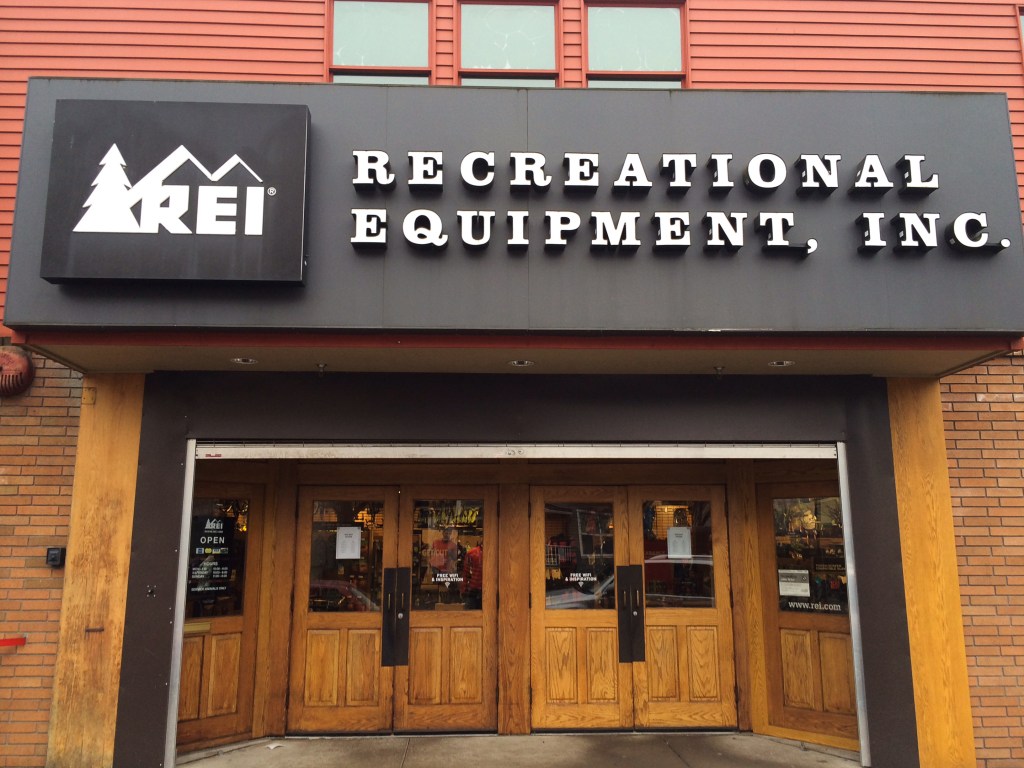REI’s renewable energy goal climbs to new heights
The outdoor co-op announces a new commitment as corporate climate leaders explore procurement options that go beyond the megawatt. Read More

Image courtesy of Shutterstock/ Joshua Rainey Photography
REI Co-op set and achieved a 100 percent renewable energy goal a decade ago. This week, it announced it’s upleveling that commitment, pledging to source locally generated renewable energy in each of its 181 stores and supporting clean energy projects.
The announcement illustrates a trend among companies leading on clean energy procurements. With early movers reaching initial clean energy goals, climate leaders are looking for ways to deepen impact.
What’s new in the REI clean energy commitment?
REI’s new pledge ties more specificity to its early commitments. In addition to seeking local sources for clean energy (such as deploying more rooftop solar across locations), the company is codifying an approach to benefit local communities — including homeowners, renters and small businesses, according to a release.
REI shared two strategies to support smaller companies on their clean energy journeys:
- Work with utilities to offer renewable power programs to small- and medium-sized businesses, and
- Partner with project developers to simplify transactions so that businesses of all sizes can directly procure impactful renewable energy.
The goal of both these approaches is to empower more small buyers to ink clean energy procurements. As demand grows for clean energy, so does competition for available projects, which is pricing many smaller buyers out of meaningful procurements. Streamlining the process will, hopefully, encourage new clean energy development and ensure that new solar and wind power is built to power local communities at an attainable cost.
Forming these partnerships are key to overcoming some of the toughest barriers to REI achieving its goals, according to Andrew Dempsey, senior manager of sustainability at REI.
“We believe partnership (with developers and utilities) along with collective action (involving other businesses and communities) will be critical to driving our ‘more local’ and ‘more accessible’ approach,” Dempsey said via email.
REI has two projects demonstrating these strategies in the works:
- A partnership with Middle Tennessee Electric to install a 1.1 megawatt (MW) rooftop solar array that will supply power to REI’s new distribution center
- A project with project developer Ever.green on an off-site solar system in Texas to power six retail stores in the Houston and Dallas area. Through the process, REI is working with Ever.green to develop a simplified transaction model to enable that, REI hopes, will increase the number of businesses that can buy locally generated renewable power.
The evolution of corporate clean energy commitments
Traditionally, corporate renewable energy goals referred to companies procuring enough clean energy to offset annual electricity generation. In that vein, almost 400 corporations have signed onto this laudable commitment through ClimateGroup’s RE100, the most common corporate pledge for renewable energy.
The goal has been meaningful for renewable energy growth. It signaled to the market that there would be corporate demand for clean energy, and those clear signals ushered in an era of procurements that helped drive down the price of clean energy technologies.
Today, with clean energy prices cheaper than their dirty counterparts, companies are setting their sights on the next frontier. Sometimes referred to as “beyond the megawatt” (as the procurements take into consideration more than just the cost and quantity of electricity), innovative corporate procurements are emerging:
- 24/7 carbon free energy, where offtakers plan to match location and time with electricity demand. This approach, embraced by Google and Microsoft, goes further in matching supply and demand than REI, but generally has less of an emphasis on the social aspects of procurements.
- Distributed renewable energy certificates (D-RECs) help aggregate and certify the impact of multiple, small-scale projects. Designed to support projects in emerging economies and incorporate climate justice considerations, Salesforce entered into a D-REC agreement in February through the support of the D-REC Initiative, a co-creation of Powertrust and South Pole.
- Procurements to decarbonize suppliers are helping corporations begin to chip away at Scope 3 emissions. McDonald’s announced a deal with its suppliers earlier this year, and Apple and Walmart have taken similar steps.
As the market continues to mature, I expect to see more creative solutions prioritizing a host of challenges in future procurements. Consideration will likely include land use, embodied carbon, labor and technology end-of-life, to name a few.












